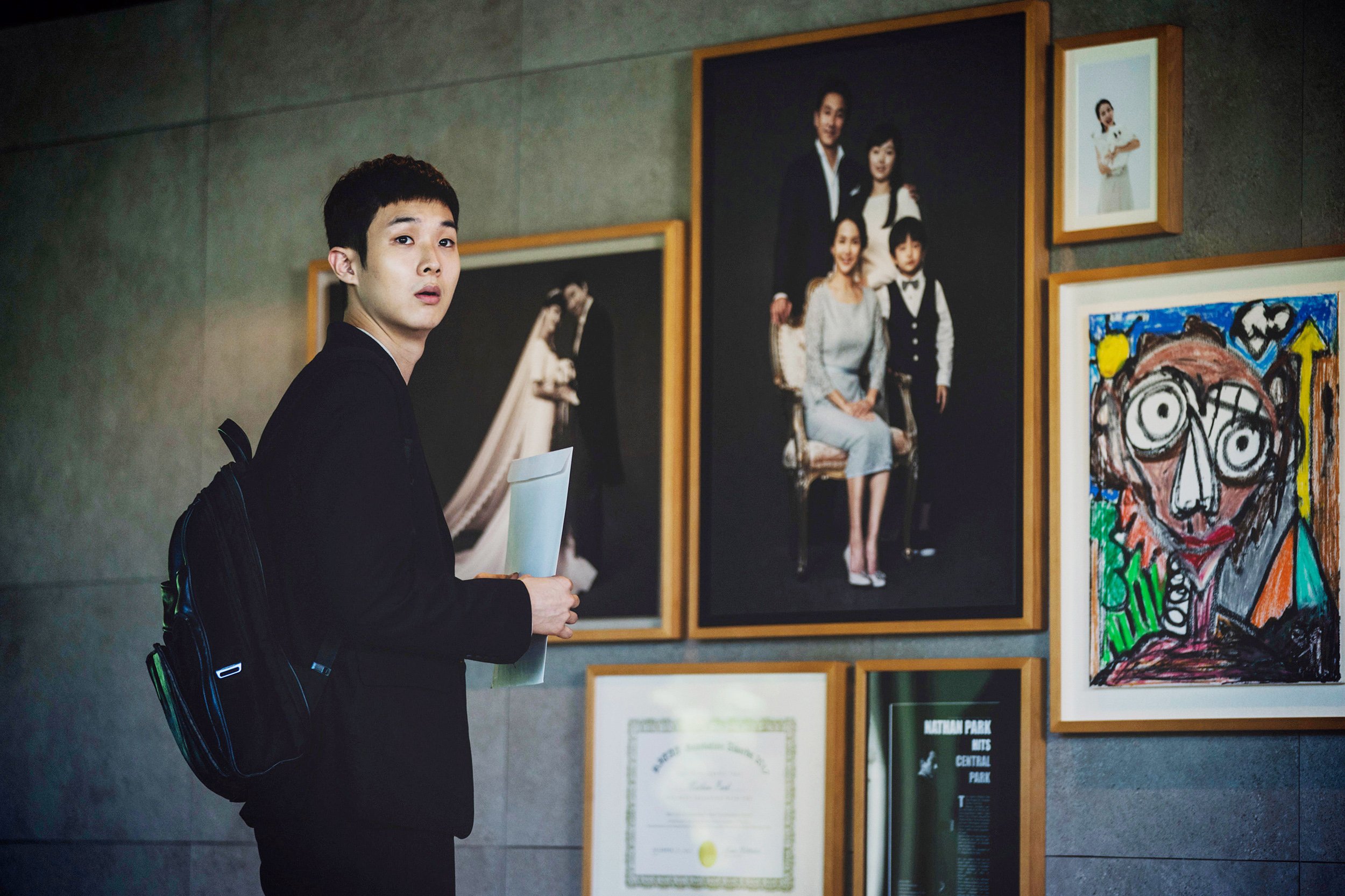
As Seen On explores the paintings and sculptures that have made it to the big and small screens—from a Bond villain’s heisted canvas to the Sopranos’ taste for Renaissance artworks. More than just set decor, these visual works play pivotal roles in on-screen narratives, when not stealing the show.
In a particularly humorous scene from the South Korean, Oscar-winning tragicomedy Parasite (2019), a young woman named Ki-jung (played by Park So-dam) poses as an art therapist to land a lucrative job in the household of a wealthy Korean family. Feigning a knowledge of both art and psychology, she praises the abstract drawings of the family’s withdrawn child, Da-song. Impressed, Da-song’s mother (Cho Yeo-jeong) immediately hires the fraudster, not knowing that her mother, father, and brother are currently also working around the house.
The childlike drawings were made by up-and-coming Korean artist called Zibezi. Originally a rapper, Zibezi (real name: Jung Jae-hoon) spent 17 years trying to break through in the music business before switching to the visual arts. His new career path worked out: in 2015, just a few years after he forewent his musical career, a friend recommended his artwork to Parasite director Bong Joon-ho, sending his creative trajectory soaring.
Zibezi’s art, which he shares liberally on his Instagram account, is characterized by vivid colors and thick lines, conveying a sense of graphic dynamism. Discussing his first visit with Bong, the artist recalled how the director was highly complimentary of his paintings, before concluding the meeting by simply saying, “I look forward to working with you.” Zibezi was handed a copy of the script and allowed room to develop the drawings as he saw fit.
One stand-out piece Zibezi created was a self-portrait by Da-song featuring a large, abstracted face with bug eyes and a spring for a neck. According to the artist, Bong had simply asked for colors to fill every inch of the canvas and that the depicted face bear the “appearance of a human and chimpanzee.” The work would fuel the understated comedy of a scene in which Ki-jung’s brother (Choi Woo-shik) views the framed painting alongside Da-song’s mother.
“It’s a chimpanzee, right?” he asks her.
“A self-portrait,” she clarifies, deadpan.
In another scene, the painting that the faux art therapist Ki-jung pretends to study is also said to contain a “schizophrenia zone,” a piece of meaningless jargon, which the gullible mother nonetheless accepts.
Eagle-eyed viewers of the film have posited various interpretations of Zibezi’s art in Parasite, including a Reddit user who theorized that the large nose on the chimpanzee painting foretells how the family of tricksters was busted due to their smell. But it’s fitting that the artist painted these works on an instinctive level, receiving no detailed instructions from the production team (though he disclosed that he did paint a foreboding figure into the corner of one of the paintings as a bit of foreshadowing). He approached the canvas much like Da-song would have; the final pieces, as with the boy’s innocent artworks, are left open to interpretation.